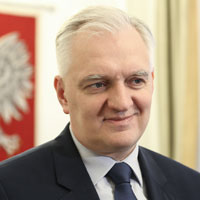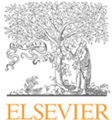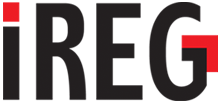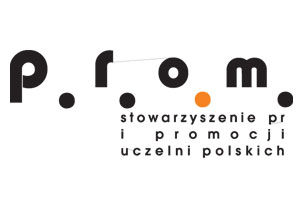Warsaw, 3-4 December 2018
Honorary Patronage: Jarosław Gowin, Deputy Prime Minister, Minister of Science and Higher Education
Organizers: "Perspektywy" Education Foundation
Partners: KRASP, PKA, IREG Observatory
Venue: "Novotel Warszawa Centrum" Hotel, Warsaw
Program
(as of 28.11.2018)
December 3, 2018 (Monday)
- 10:00 – 11:00
-
Registration and welcome coffee
venue: Hotel Novotel Centrum, Warszawa - 11:00 – 11:20
-
Opening Session
- Prof. Jan Szmidt, President, Conference of Rectors of Academic Schools in Poland (CRASP), Rector, Warsaw University of Technology
- Prof. Krzysztof Diks, President, Polish Accreditation Committee
- Prof. Luiz Claudio Costa, President, IREG Observatory on Academic Ranking and Excellence
- Waldemar Siwiński, President, Perspektywy Education Foundation
- 11:20 – 11:30
-
Guest of the Conference
- Jarosław Gowin, Deputy Prime Minister, Minister of Science and Higher Education
- 11:30 – 12.30
-
PLENARY SESSION I
How the others do it? – Experiences in implementation of the “Excellence Initatives”.
Several countries have initiated programs aimed to accelerate the development of selected universities, known as the “Excellence Initiatives”. The inspiration behind the projects may have been varied but in every case the aspiration to improve standing in the global rankings has always been present, so is the case in Poland where there are plans to establish “Excellence Initiative - research university”. The session will discuss the role of rankings in shaping the higher education policy in various countries. As a case study, based on the first 3-year experience of the implementation of the Russian Academic Excellence Project 5-100 which is supposed to elevate at least five Russian universities to the Top-100 in the global rankings. The Russian experience will be illustrated by a report prepared by one of their universities but presented in a broad international context.
Chair: Prof. Michał Kleiber, Vice President, European Academy of Science and Arts, f. President, Polish Academy of Sciences
Speakers:
- Alex Usher, President, Higher Education Strategy Associates (Canada): - Global Rankings and the Geopolitics of Higher Education - understanding the influence and impact of rankings on higher education, policy and society
- Evgeny Chuprunov, Rector, Lobachevsky University; Alexander Bedny, Vice Rector, Lobachevsky University (Russian Federation): - Implementation of the Russian Academic Excellence Project 5-100 - a look from the perspective of Lobachevski University
Discussion
- 12:30 – 13:00
-
coffee break
- 13:00 – 13:20
-
PARTNER'S PRESENTATION
ASSECO for Universities – Integrated Solutions
The successful implementation of the „Law on Higher Education and Science” in a large part will depend on effective management of research and creation of the culture of quality in research. For this, new tools based on the most recent information technology and new approach are needed; such tool like program "Uczelnia 3.0" (University 3.0).
Speaker:
- Andrzej Dopierała, Vice President ASSECO, Poland
- 13:20 – 14:30
-
SESSION II – PANEL DISCUSSION
Research universities – What are they? How to select them? How to manage them?
The law of 20 July 2018 calling for creation in Poland „Excellence Initiative – Research University” raises several questions. The panel will discuss, from the perspective of different types of institutions, the conditions that a world class university should meet, how such institutions can be created in the Poland’s settings, what the “road maps” should look like, and what are the challenges facing the university management?
Moderator: Prof. Stanisław Kistryn, Vice Rector for Science and Structural Funds, Jagiellonian University.
Invited panelists:
- Prof. Arkadiusz Mężyk, Rector, Silesian University of Technology
- Prof. Paweł Rowiński, Vice President, Polish Academy of Sciences
- Prof. Ryszard Naskręcki, Vice Rector for Science and International Cooperation, Adam Mickiewicz University in Poznan
- Prof. Jarosław Bosy, Vice Rector for Science and International Cooperation, Wroclaw University of Environmental and Life Sciences
- Prof. Marcin Moniuszko, Vice Rector for Science, University of Bialystok
Discussion
- 14:30 – 15:30
-
lunch
- 15:30 – 16:40
-
PLENARY SESSION III
Polish Universities in the Global Rankings - can they run faster?
Global academic rankings have gone a profound evolution, they have increased the number of evaluated institutions to Top-1000 and have radically increased the number of rankings by subject. It has become a standard to analyze some 50 disciplines in 500 or more institutions. This way a sizable number of Polish universities have been included. The results of the rankings by subject raise in Poland some emotions and criticism aimed at some universities. The session will discuss the trends and opportunities of Polish universities in the by subject rankings. Some suggestions regarding possible improvement of position of Polish universities in the rankings will be presented.
Chair: Waldemar Siwinski, President, "Perspektywy" Education Foundation, Vice President, IREG Observatory on Academic Ranking and Excellence.
- Waldemar Siwinski, President, "Perspektywy" Education Foundation, Vice President, IREG Observatory on Academic Ranking and Excellence, - Polish Universities in the Global Rankings 2018 – a picture with a flaw.
- Robert Morse, Chief Data Strategist for US News & World Report (USA): Polish Universities in the US News Best Global Universities Rankings - their chances and opportunities to advance
- Tomasz Psonka, Regional Director, Elsevier: Research in Poland - will SciVal tell you the truth?
Discussion
- 16:40 – 17:00
- coffee break
- 17:00 – 18:40
-
SESSION IV - PANEL DISCUSSION
Evaluation of research - and its influence on the international competiveness of university
One of the main objective of the higher education reform in Poland is to elevate the level of research and intensify its internationalization. The proposed principles of inheritance of excellence and priorities in financing of authors and units with best results created situation where evaluation has become the central mechanism. The new rules introduced by the law and new classification of science and disciplines are now based on international standards. A side intention of the authors of the reform was to create a unique chance for the improvement of the position of Polish universities in the global university rankings, I n particular in the rankings “by subject”. The academic community looked at these proposals with great attention, voiced several serious comments and reservations. These were met with understanding, and the project will be reviewed. The session will relate to the above discussion and will discuss a number of issues that are linked to the new system of evaluation of research and international visibility of an institution.
Chair: prof. Tomasz Szapiro, Chairman, CRASP Commission on Accreditation and Rankings; f. rector, Warsaw School of Economics (2012-2016)
Invited panelists:
- Prof. Zbigniew Marciniak, President, General Council of Science and Higher Education
- Bartłomiej Banaszak, Deputy Director, Department of Science, Ministry of Science and Higher Education
- Prof. Roman Cieślak, Rector, SWPS University of Social Sciences and Humanities (tbc)
- Prof. Emanuel Kulczycki, Head, Scholarly Communication Research Group, Center for Public Studies, Adam Mickiewicz University in Poznan, The Committee for Evaluation of Scientific Research Institutions member
- Dr. Olaf Gajl, Director, National Information Processing Institute
- 18:40
-
Closing of the first day’s sessions
- 18:40 – 19:30
-
Networking by the violin music and a glass of Champagne
- 19:30 – 22:00
-
Conference Dinner - Gala of the "ELSEVIER Research Impact Leaders Awards 2018"
venue: Hotel Novotel Centrum, WarszawaHosts of the Conference Dinner:
- Felix Haest, Vice President, Elsevier
- Krzysztof Szymański, Director, Elsevier Polska
December 4, 2018 (Tuesday)
- 09:30 – 10:00
-
Welcome coffee
- 10:00 – 11:30
-
PLENARY SESSION V
International rankings – methodology without secrets
Rankings provide university attractive opportunities for international positioning, suggest desirable partners for cooperation but also to monitor reform implementation. This, however, requires in depth knowledge of strengths and weaknesses of ranking methodology. During the session, the authors of the presented main international rankings will present the details of methodology used with special attention paid to Polish universities. For the first time the US News Best Global Universities Ranking” will be presented in Warsaw.
Chair: prof. Dominik Antonowicz, Assistant professor, Head, Institute of Sociology of Science, Nicolaus Copernicus University in Torun
Speakers:
- Robert Morse, Chief Data Strategist for US News & World Report (USA): US News Best Global Universities Rankings
- Selina Griffin, Rankings Manager, QS Intelligence Unit, QS Quacquarelli Symonds (United Kingdom): QS World University Rankings development
- Prof. Mikhail Myagkov, Skoltech University, University of Oregon (Russia/US): - "Three University Mission Ranking" - new approach to academic rankings
Commentary:
- Prof. Luiz Costa, President, IREG Observatory on Academic Ranking and Excellence
Discussion
- 11:30 – 12:00
-
Coffee break
- 12:00 – 13:10
-
PLENARY SESSION VI
Rankings and international visibility of university
Rankings tend to have powerful influence on the university international visibility, this, in turn, facilitates contacts with universities in other countries and inclusion into international consortia or research teams. The session will discuss possibilities of active creation of desirable image and prestige through rankings with the use of new technologies.
Chair: Prof. Grzegorz Mazurek, Vice-Rector for International Relations, Kozminski University in Warsaw
Speakers:
- Isidro Aquillo, Head, Cybermetrics Lab, the Spanish National Research Council CSIC, Webometrics Ranking Coordinator (Spain): - New development of "Webometric" ranking
- Dr. Pawel Poszytek, Director General, Foundation of Development of Higher Education System (FRSE)
- Dr. Zygmunt Krasinski, Director, National Contact Point for Research Programmes of the European Union "Horizon 2020"
- Juliusz Szymczak-Gałkowski, Director, Department of Inernational Cooperation, Ministry of Science and Higher Education
Discussion
- 13:10 – 14:20
-
Plenary Session VII
Networks of European Universities – a risk or an opportunity for higher education?
Early November, the European Commission, following the initiative of French President Emmanuel Macron supported by the rectors conferences of Germany, France, Poland and other countries, opened a 30 million euro project of a network of European Universities that will embrace leading universities from different parts of our continent. At the first stage six networks will be created each involving three universities from three countries. Applications for financing should be submitted by the end February, and the first network will start operating starting September 1, 2019. The main goal behind the idea of European University is to achieve a qualitative jump in the research and implementation of the results. During the session, representatives of universities engaged in the project will discuss assumptions, conditions and consequences of this initiative for the cohesiveness and progress of the European higher Education and its global competitiveness.
Chair: Prof. Wiesław Banyś, Honorary President of the Conference of Rectors of Academic Schools in Poland (CRASP), Board Member, European University Association
Speakers:
- Prof. Stanisław Kistryn, Vice Rector for Scientific Research and Structural Funds, Jagiellonian University
- Veronika Hunt Safrankova, Director, International Relation Office, Charles University in Prague (Czech Republic)
- Prof. Maciej Duszczyk, Vice Rector for Scientific Affairs, University of Warsaw
Discussion
- 14:20 – 14:30
-
Closing session
Rankings and challenges facing science and higher education in Poland
- Prof. Jan Szmidt
- Waldemar Siwiński
- 14:30 -15:30
-
Farewell lunch










